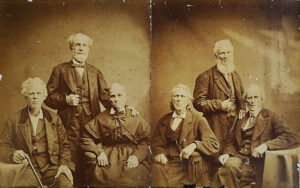Have you ever noticed that some people refer to countries using words like “she” or “her”? This might seem strange, but it’s a tradition that has been around for a long time. In this article, we’re going to explore why some countries are given these female pronouns and what it means.
1. Talking Like Our Ancestors
One big reason is that many languages have words that are either masculine or feminine. These languages often use pronouns like “he” and “she” based on the gender of the word. So if a country’s name is considered feminine in a language, it might be called “she.”
2. Motherhood
Imagine a country like a caring and protective mother. By calling it “she,” people can use this idea to create a special connection with their nation. It’s like saying the country looks after its people, much like a mother looks after her children.
3. Stories and Poetry
Sometimes, when authors and poets write about their country, they want to make it more interesting and meaningful. They might use “she” to make their stories or poems more colorful. It’s a way to describe the nation as if it were a person with a history and character.
4. Feeling Proud and United
Referring to a country as “she” can make people feel more connected to their nation. It’s like saying, “We’re all part of this big family, and our country is like our protective mom.” This can create a sense of belonging and unity among people.
5. Changing Times
In today’s world, we’re becoming more aware of using language that’s fair and inclusive. Some people think using “she” for countries can be a bit old-fashioned or even unfair because it might remind people of traditional gender roles. So, there’s a growing movement to use words that don’t suggest any gender, making language more equal for everyone.
Conclusion
People call countries “she” for many reasons. It’s a tradition, a symbol of care and protection, and a way to create stories and unity. But as our language and culture change, we might see more gender-neutral language in the future. It’s an interesting part of how language and culture evolve over time.






